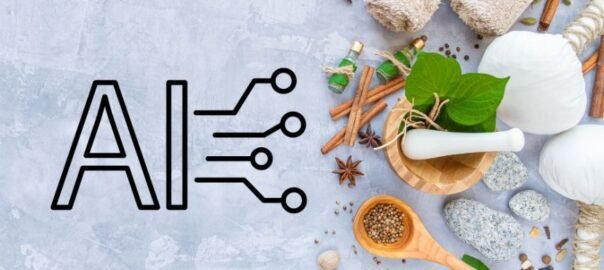The ancient Indian system of medicine, has guided holistic healing for centuries. Rooted in nature and personalized care, Ayurveda focuses on balancing the body, mind, and spirit. But as the world embraces digital transformation, how can AI enhance Ayurveda’s potential? Enter Artificial Intelligence (AI)—a game-changer that is revolutionizing Ayurvedic healthcare, making it smarter, more accessible, and highly personalized.
The Intersection of Ayurveda and AI
Traditionally, Ayurvedic diagnosis relies on pulse reading (Nadi Pariksha), understanding doshas (Vata, Pitta, Kapha), and analyzing symptoms holistically. However, with AI-powered tools, these processes are becoming more data-driven and precise. AI algorithms analyze vast datasets of Ayurvedic texts, patient histories, and biometrics, offering accurate diagnoses and treatment recommendations.
AI-Powered Ayurvedic Diagnosis
- Machine Learning for Pulse Diagnosis: AI can now interpret pulse variations using sensors, mimicking the expertise of seasoned Ayurvedic practitioners.
- Personalized Dosha Analysis: AI-powered apps assess lifestyle, diet, and genetic factors to determine an individual’s dosha balance.
- Predictive Health Analytics: AI helps predict imbalances before they manifest into diseases, allowing for proactive Ayurvedic intervention.
Smart Ayurvedic Solutions with AI
1. Personalized Herbal Remedies
AI analyzes patient symptoms, lifestyle, and medical history to recommend Ayurvedic herbs and formulations. This ensures a tailored treatment plan, maximizing effectiveness.
2. AI-Driven Ayurvedic Chatbots & Virtual Assistants
Imagine having a digital Vaidya (Ayurvedic doctor) available 24/7! AI-driven chatbots provide instant consultations, guiding users on diet, herbal remedies, and lifestyle practices.
3. Smart Ayurveda-Based Wearables
Innovative wearables now track stress levels, heart rate, and body temperature, correlating this data with Ayurvedic principles to offer real-time health recommendations.
4. AI in Ayurvedic Research
By analyzing centuries-old Ayurvedic texts and modern clinical data, AI accelerates the discovery of new herbal formulations and their effectiveness, bridging ancient wisdom with modern science.
The Future of Ayurveda with AI
The synergy between Ayurveda and AI is shaping a future where holistic healing is data-driven, precise, and widely accessible. AI is not replacing Ayurvedic practitioners but enhancing their ability to provide smarter, faster, and more effective health solutions.
At Rigil Healthcare, we are committed to bringing you cutting-edge Ayurvedic solutions powered by AI, ensuring wellness that’s both traditional and technology-driven.
Embrace the Future of Ayurveda!
With AI, Ayurveda is evolving to meet modern healthcare challenges while staying true to its roots. The future is here—personalized, intelligent, and deeply connected to nature.
Stay tuned for more innovations in Ayurveda and AI, only at Rigil Healthcare.


